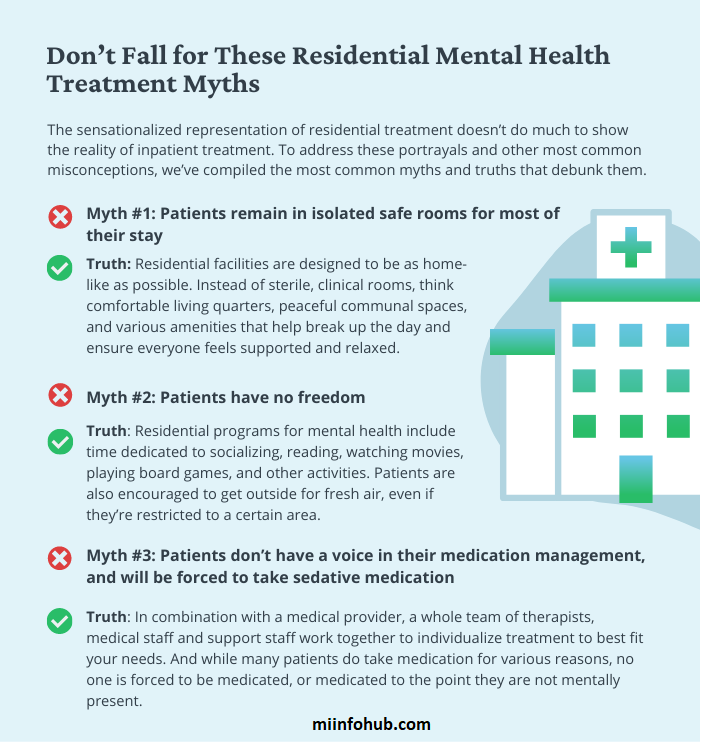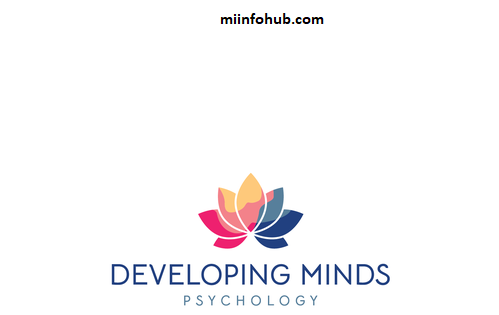Residential treatment for mental health offers a safe and supportive environment for individuals to focus solely on their recovery. In these programs, patients receive around-the-clock care from a team of mental health professionals, including therapists, psychiatrists, and counselors. These programs are designed to help individuals manage a wide range of mental health conditions, from anxiety and depression to more severe disorders like schizophrenia, bipolar disorder, and PTSD.
The length of stay in residential treatment can vary greatly depending on multiple factors, such as the complexity of the mental health condition, the individual’s progress, and any co-occurring disorders like substance abuse. Programs may last anywhere from a few weeks to several months, with some individuals requiring long-term care of a year or more.
Typical Duration Of Residential Treatment For Mental Health
The typical duration of residential treatment for mental health varies depending on the individual’s condition and progress. Most programs range from 30 to 90 days, but some may extend beyond this period. Short-term programs, lasting 30 days or less, are suited for individuals with less severe conditions or those needing focused interventions. Medium-term programs, ranging from 30 to 90 days, provide a more comprehensive approach for moderate mental health challenges or dual diagnoses. Long-term programs, lasting 90 days or more, are designed for individuals with chronic or severe conditions, sometimes extending up to a year or longer for thorough care. If you are intrusted about selling health insurance then click here.

Factors That Affect Treatment Duration
Several factors influence the duration of residential treatment for mental health:
Severity Of The Mental Health Condition
- The severity of a mental health condition, such as schizophrenia, bipolar disorder, or severe depression, directly influences the length of residential treatment. These complex conditions often require extended care, sometimes lasting months, as stabilization and recovery are more gradual. Longer treatment allows for deeper interventions and the development of coping mechanisms to ensure long-term well-being.
Progress In Treatment
- Progress in treatment varies for each individual. Some may show improvement within weeks, while others take months to stabilize. The duration is adjusted based on how quickly a person responds to therapy and medications. Regular reviews of treatment plans help ensure the right balance between care and recovery speed.
Dual Diagnosis
- When mental health issues are combined with substance abuse, known as a dual diagnosis, treatment requires a longer stay. Both conditions must be treated simultaneously to prevent relapse. These integrated programs typically extend beyond standard durations to address the complexities of managing mental health alongside addiction.
Insurance Coverage
- Insurance coverage can limit or extend the length of stay. Some policies cover long-term treatment, while others may restrict the number of days. Navigating insurance policies is crucial for ensuring adequate care, and in some cases, alternative funding may be necessary to cover extended treatment.
What Happens During Residential Treatment For Mental Health?
During residential treatment, individuals receive a well-rounded approach to mental health care through various therapies and interventions designed to address their unique needs:
- Individual Therapy: Patients engage in one-on-one counseling sessions with licensed therapists. These sessions are crucial for uncovering the underlying causes of mental health issues, such as trauma, anxiety, or depression. Therapists help patients develop personalized coping mechanisms and provide ongoing emotional support throughout the treatment.
- Group Therapy: Peer support is a key element of residential treatment. Group therapy sessions allow individuals to share their experiences in a safe, supportive environment. Participants gain new perspectives by hearing from others facing similar challenges, fostering a sense of community and mutual encouragement.
- Medication Management: Many individuals require medication to manage their mental health conditions. Residential programs include close monitoring by psychiatrists who adjust medications as needed to ensure the best outcomes.
- Holistic Approaches: Residential treatment often includes holistic therapies like yoga, meditation, and art therapy. These activities promote overall well-being by reducing stress, improving self-awareness, and encouraging emotional expression. Such approaches complement traditional therapies, supporting both mental and physical health.
- Aftercare Planning: Before leaving residential treatment, patients work with their care team to develop a detailed aftercare plan. This plan is vital for ensuring long-term success and includes recommendations for ongoing therapy, support groups, or outpatient services. The goal is to help individuals maintain their progress and successfully transition back into everyday life, with continued resources and support.
Why Longer Stays Might Be Beneficial
Longer stays in residential treatment for mental health can provide significant benefits, particularly for individuals with complex or chronic conditions. Here’s why:
- Deeper Healing: Extended time in treatment allows individuals to work through deeper-rooted issues, such as long-standing trauma, severe depression, or anxiety. This gradual process enables therapists to thoroughly address underlying problems that may not be fully resolved in shorter programs.
- Stability And Consistency: Mental health recovery often requires time and consistency. Longer stays provide the stability needed for patients to adjust to new routines, coping strategies, and therapeutic interventions without the pressure of returning to daily life too soon. This extended period helps solidify progress and establish lasting habits.
- Comprehensive Treatment: Individuals with dual diagnoses or multiple mental health challenges often need more time to address both their mental health condition and any co-occurring issues, such as substance abuse. Longer treatment ensures all aspects of a person’s health are treated comprehensively, reducing the risk of relapse.
- Time To Build Trust: Building strong relationships with therapists and other staff takes time. Longer stays allow patients to establish deeper trust, making it easier to engage in therapy, open up emotionally, and work through complex emotions or behaviors.
- Better Aftercare Preparation: Extended treatment offers more time to develop a robust aftercare plan. With extra time, therapists can tailor post-treatment resources, such as continued counseling, support groups, or outpatient programs, ensuring individuals leave with a solid foundation for ongoing recovery.

Who Can Benefit From Residential Treatment For Mental Health?
Residential treatment can benefit a wide range of individuals struggling with various mental health conditions. Those experiencing severe mental health issues, such as schizophrenia, bipolar disorder, or major depression, often require intensive support that residential programs provide. Additionally, individuals with dual diagnoses, which involve both mental health and substance abuse disorders, can find the comprehensive care needed for recovery in this structured setting. Residential treatment is also suitable for those who have not responded well to outpatient therapies or for individuals needing a safe environment to stabilize their mental health before reintegrating into everyday life. Ultimately, anyone seeking a supportive, immersive, and focused approach to their mental health recovery may find significant benefits in residential treatment programs.
How To Choose The Right Residential Treatment For Mental Health Program
Choosing the right residential treatment program is crucial for effective mental health recovery. Here are key factors to consider:
- Assess Your Needs: Start by evaluating your specific mental health issues, treatment goals, and any co-occurring disorders. Understanding your unique needs will help narrow down programs that specialize in those areas.
- Research Programs: Look for residential treatment centers with a good reputation and positive reviews. Investigate their treatment approaches, success rates, and any specialties they may have, such as trauma-informed care, dual diagnosis, or specific therapeutic modalities.
- Check Accreditation And Licensing: Ensure that the facility is accredited by relevant organizations and licensed to operate in your state. Accreditation guarantees that the program meets specific quality standards in care.
- Evaluate Therapies Offered: Different programs may use various therapeutic approaches, including cognitive-behavioral therapy (CBT), dialectical behavior therapy (DBT), or holistic therapies. Determine which therapies resonate with you and align with your recovery goals.
- Consider Location: The program’s location can impact your treatment experience. Some individuals prefer facilities closer to home for family support, while others may benefit from a change of environment.
- Review Staff Credentials: Look into the qualifications and experience of the treatment team. A qualified staff with expertise in mental health treatment is essential for effective care.
- Understand Costs And Insurance Coverage: Check the cost of the program and what your insurance covers. Some facilities may offer sliding scale fees or financial assistance options, making treatment more accessible.
- Visit The Facility: If possible, visit the treatment center to get a feel for the environment, staff, and culture. This firsthand experience can help you assess if it’s the right fit for you.
- Trust Your Instincts: Ultimately, choose a program where you feel comfortable and safe. Trust your instincts about the staff and environment, as a positive therapeutic relationship is vital for recovery.

Aftercare And Continuing Support
Aftercare and continuing support are critical components of a successful recovery following residential treatment for mental health. Once individuals complete their stay, having a solid aftercare plan in place helps ensure a smooth transition back to everyday life. Here’s what to consider:
- Ongoing Therapy: Continuing with individual therapy or group counseling sessions can help reinforce the skills and coping strategies learned during residential treatment. Regular check-ins with a mental health professional provide support and guidance as individuals navigate daily challenges.
- Support Groups: Participating in support groups, such as 12-step programs or peer-led organizations, offers a sense of community and shared experience. These groups can provide encouragement and understanding, reducing feelings of isolation during the recovery process.
- Family Involvement: Engaging family members in aftercare planning can strengthen support systems. Family therapy sessions can address dynamics that may have contributed to mental health issues and improve communication and understanding among loved ones.
- Life Skills Training: Many programs offer life skills training to help individuals reintegrate into society. This may include job readiness training, financial management, or stress management workshops, all of which equip individuals with practical tools for independent living.
- Monitoring and Follow-Up: Regular follow-up appointments with mental health professionals can help monitor progress and address any emerging issues. Ongoing assessments ensure that individuals stay on track and can adjust their treatment plans as needed.
- Emergency Resources: Having a list of emergency contacts and resources, including crisis hotlines and local mental health services, is crucial. This ensures individuals know where to turn in case of a mental health crisis or urgent need for support.
- Self-Care Practices: Encouraging ongoing self-care routines, such as exercise, mindfulness, or hobbies, can help maintain mental well-being. Developing healthy habits during aftercare reinforces the skills learned during treatment and promotes a balanced lifestyle.
Conclusion
The duration of residential treatment for mental health varies widely based on individual needs, typically ranging from 30 to 90 days, although some programs extend beyond this timeframe for more complex cases. Several factors influence the length of care, including the severity of the mental health condition, the individual’s progress in treatment, the presence of dual diagnoses, and insurance coverage constraints.
Choosing the right treatment program is crucial for success. Programs tailored to specific needs can provide the necessary support and interventions to facilitate recovery. Furthermore, committing to aftercare significantly enhances the likelihood of achieving lasting recovery and improved overall well-being. By engaging in ongoing therapy, support groups, and self-care practices, individuals can maintain the progress made during their residential stay and effectively navigate the challenges of daily life.
Residential treatment offers a comprehensive and structured approach to mental health care that has the potential to transform lives. It addresses the root causes of mental health issues, equips individuals with coping strategies, and fosters a supportive community. If you or someone you know is considering residential treatment, consulting with a qualified mental health professional can help identify the most suitable plan tailored to individual needs and establish a timeline for treatment duration. Taking this step can lead to a brighter and healthier future.


